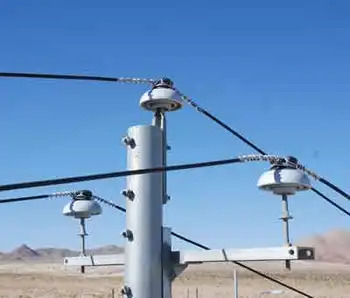Some state renewable standards 'unachievable'
By Platts
Substation Relay Protection Training
Our customized live online or in‑person group training can be delivered to your staff at your location.

- Live Online
- 12 hours Instructor-led
- Group Training Available
State legislators have set renewable and energy efficiency targets too high in some cases, with regulators and utilities negotiating penalty payments or other ways to address such lofty goals, added Donald Downes, chairman of the Connecticut Department of Public Utility Control.
Without identifying specific states, Downes said some state lawmakers "haven't been very realistic" in crafting RPS laws and demand-side management targets.
Maine's RPS is the highest in the US, but it has been modified and Maine faces the additional challenge of having a power grid with the northern part of the state not connected to the ISO New England, other speakers said at Platts' Northeast Power Markets Forum in Washington.
With a transmission grid strained - as evidenced by increasing levels of transmission loading relief requests, and generation interconnection queues bulging at several independent system operators - the power industry is facing "tremendous tasks" to meet increased demand for electricity, Owens said. The debate about who should pay for transmission additions is continuing with no simple solution in sight, Owens added.
With 26 states coming up with some form of RPS, "we are trying to find out what's achievable" and at what cost to the consumer, Owens said.
Newton, Massachusetts-based renewable project developer UPC Wind Management has planned transmission additions on its own for several of its projects in order to bring them online sooner and have cost certainty, said Steve Vavrik, vice president of origination at UPC Wind.
The company intends to build 90 miles of 345 kV transmission line for a project in Utah and 35 miles of 115-kV line for a 57 MW wind project in Washington County, Maine, Vavrik said.











